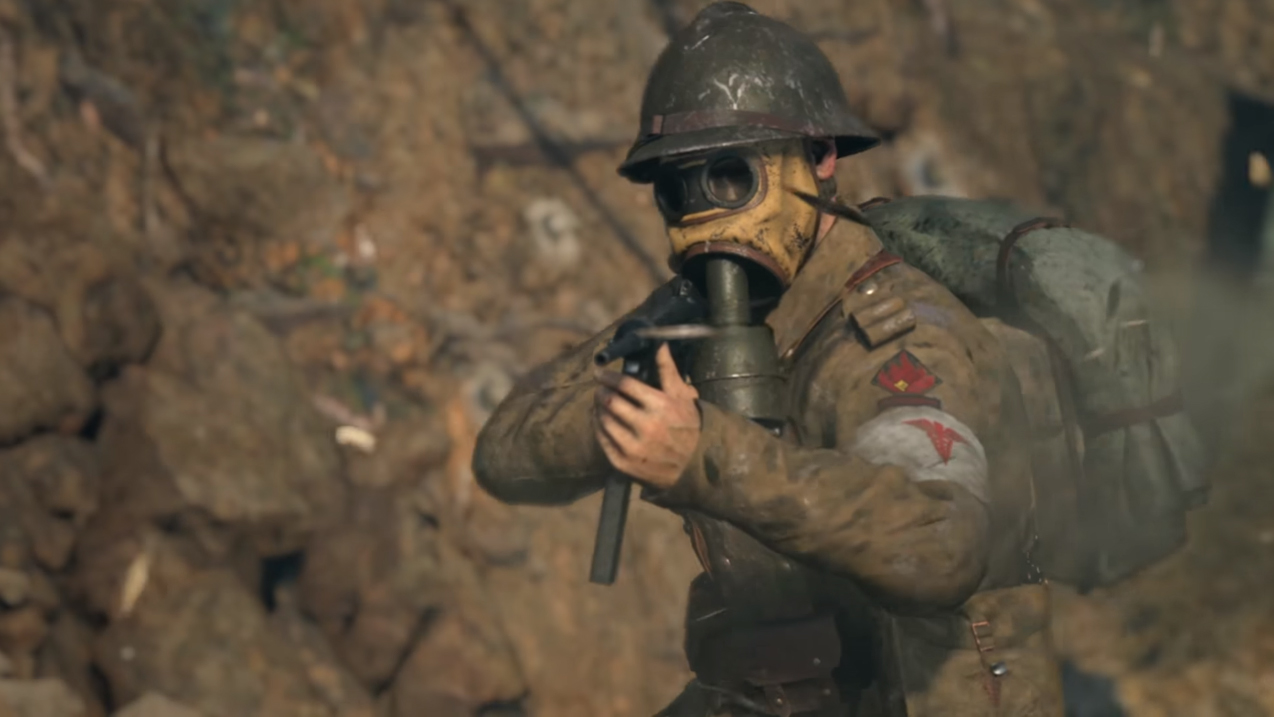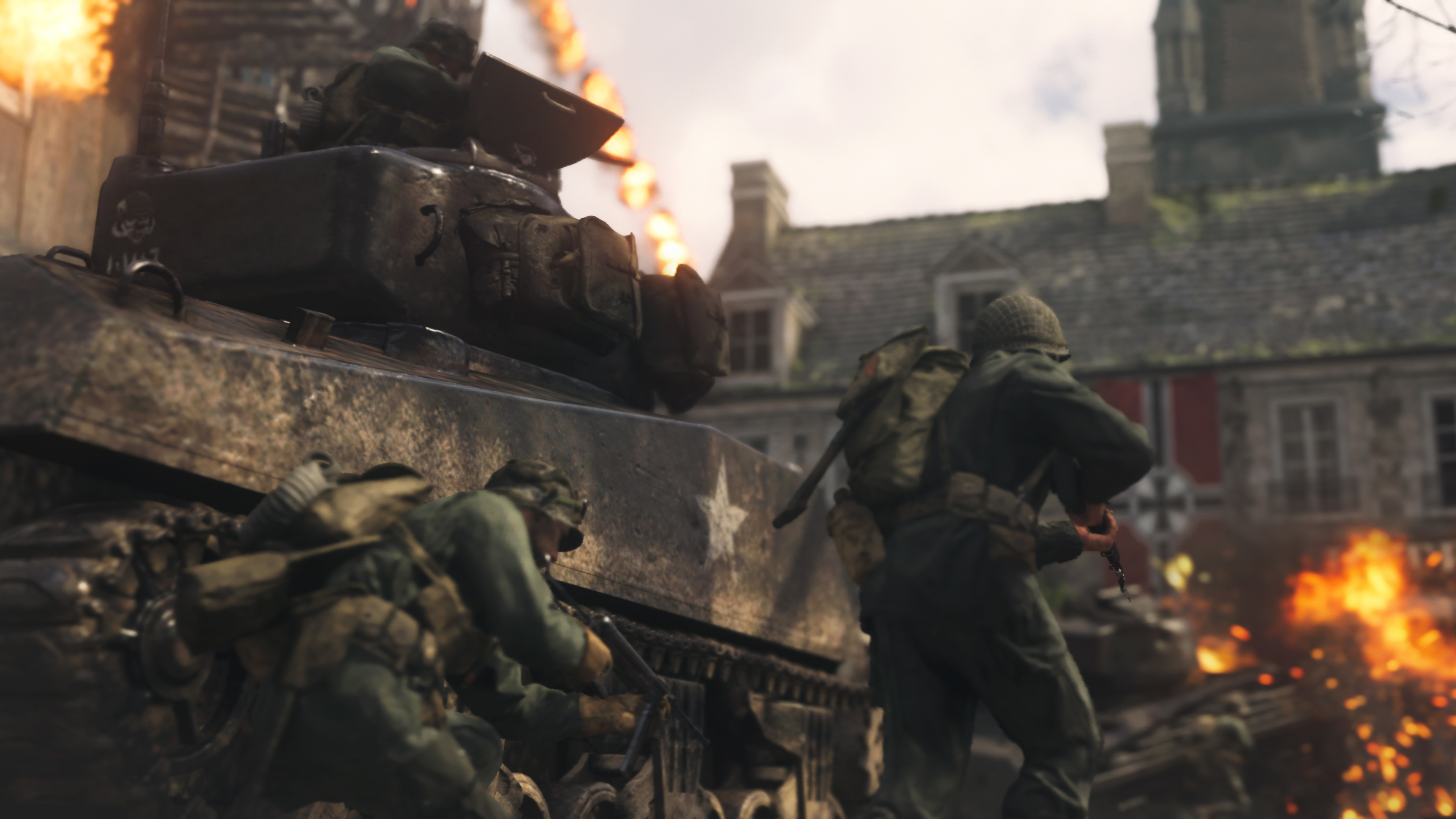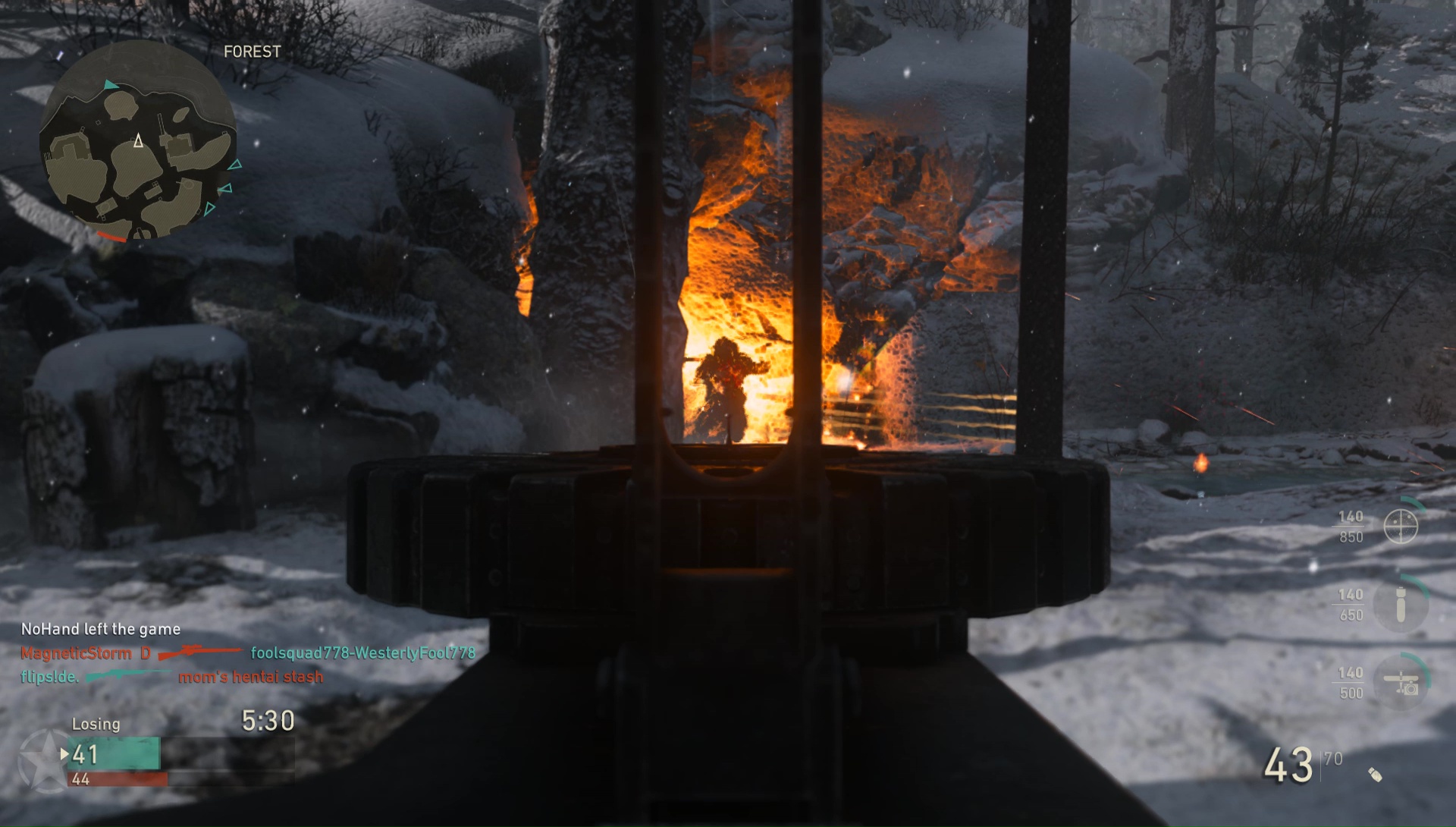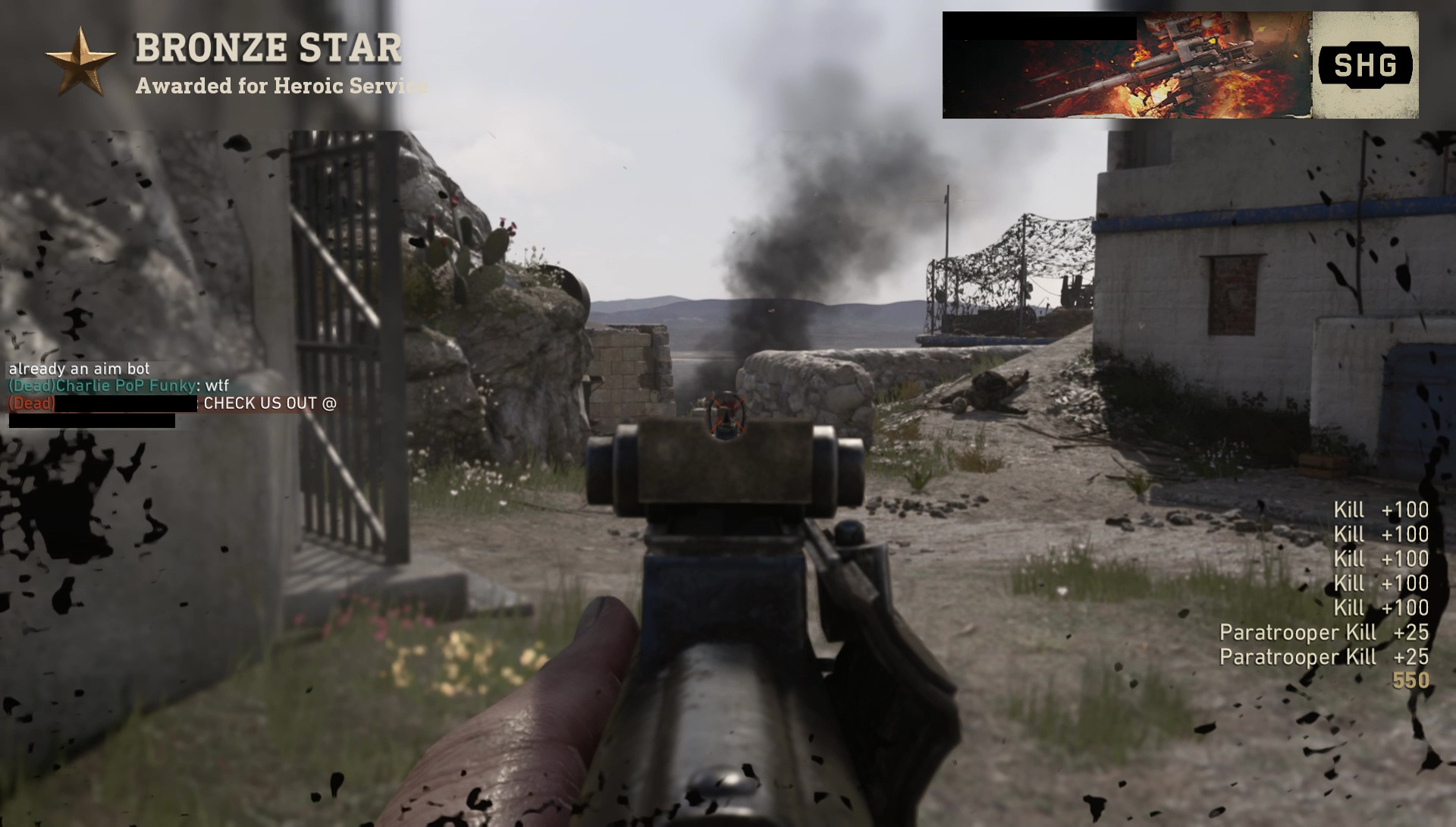The Call of Duty: WWII beta was pretty damn fun
The good, the bad, and the just OK from Call of Duty's return to M1 Garands and Greasers.
I spent most of Sunday playing the CoD:WWII multiplayer beta, and I didn't want it to end. I haven't enjoyed CoD multiplayer this much since World at War or the first couple Modern Warfares.
I had answers for hopping SMGers and quickscoping snipers that I didn't feel like I had in Infinite or Advanced Warfare. It may only be half-a-second, but there's more time to think in WWII. There's no zipping from one side of the map to the other, no jetpacking into windows to score a quadkill. For those of us who can't score midair quickscopes, stripping all the futuristic junk from CoD's already hyper-fast shooting is a boon. Plus we get the deeply satisfying ping of an M1 Garand ejecting its clip again.
That said, I'm not necessarily going to recommend CoD:WWII when it releases next month. Whether it's set in the future or the past, Call of Duty is still old fashioned and overpriced. You can get both Day of Infamy and Rising Storm for less than CoD's base price, for instance, and both are very good multiplayer WWII games. I'm much more interested than I was before the beta, though. To elaborate, here are a few of the things I really liked about CoD:WWII—followed by a few things that sucked, including one problem that must be addressed if CoD has any chance of a PC revival.
Good: Three-lane maps
Without claiming encyclopedic knowledge of every map in every yearly CoD, the maps in the CoD:WWII beta felt more rectangular and symmetrical than I'm used to from the series. The back-to-the-basics approach succeeds so far.
Aachen in particular has a classic structure: it's a single road flanked by ruined buildings, with spawns at either end protected by conveniently-placed trolley cars blocking the view down the road. The left and right lanes through the buildings are vulnerable to crossfire over the road, and are the most popular spots to hang out. Though if a sniper isn't camping in the enemy's trolley car, the road itself is a surprisingly viable way to move up, because so much focus is put on protecting building exits.
The other maps are similarly structured—spawns separated by three lanes—with varyingly complex center areas. The goal in team deathmatch is typically to break through one of the three lanes to cause havoc in the enemy spawn. (As an example, the gif above takes place in the enemy spawn on Aachen, where I'm using a Bren with the Rapid Fire upgrade.) Either that, or you master and patrol a section or two of the map, exploiting a thorough knowledge of its entry points, the best cover, and the most common mistakes players make.
I was pleased by how quickly I was able to build a basic mental map of these attack lanes, sniping spots, and flanking routes so I could get straight to countering them. Within a few hours I'd built myself a small library of repeat situations and how to deal with them.
Keep up to date with the most important stories and the best deals, as picked by the PC Gamer team.
There's always someone camped at the end of a certain hallway in the apartments on Aachen, for instance, and the area near the armored truck on Gibraltar is great for playing hide-and-go-seek and provides coverage of a few popular entry points (see that in the gif above). Each area is purpose-built to create problems and provide solutions depending on your equipment, and I caught onto at least a dozen common scenarios within a day of play. I've hardly mastered any of them, but the ease at which I understood all the threats I needed to adapt to in any given section speaks to a clarity of vision in the design of these maps.
Good: Location barks
CoD:WWII introduces some automated voice chatter, in that teammate characters will bark out the locations of enemies they spot, eg, "They're coming through the library!" It's the concise tactical information you'd want a teammate to actually shout out, but this being Call of Duty, I muted all real voice chat by my third round so I wouldn't have to hear anyone screeching into their mic. It's a great help, and I earned several kills by paying attention to my teammates' involuntary teamwork.
Good: The M1 Garand
When I started playing Medal of Honor: Allied Assault back in the early 2000s, the M1 Garand rose to the top spot on my favorite weapons list, tied with Quake 2's railgun. The Garand rapidly spits out bullets like an SMG, but each shot is a click, a calculation, rather than part of a spray pattern produced by holding down the trigger of an automatic weapon. You choose at what point in the recoil animation to fire next, and that's always made it a captivating weapon for me.
As fully-automatic weapons and one-hit-kill sniper rifles tend to dominate Call of Duty, I was worried that its version of the Garand wouldn't be viable. But it is, providing a nice middle ground between the two. It can be fired about as rapidly as you can click, and two hits above the belt scores a kill. In close-quarters situations, if you're using the Infantry Division, it's equipped with a bayonet which can catch hopping SMGers at some range. For those who like precision, but aren't pro quick scopers, it's a thoroughly enjoyable gun. I feel especially satisfied with myself when I catch someone running laterally with one shot, then another just before they disappear behind cover—to me, that's way more gratifying than spraying a Grease Gun a step in front of them.
Just OK: War mode
Call of Duty's new objective-based mode is precisely 'alright.' In the one War map included with the beta, one side had to capture a building, build a bridge, plant a bomb, and escort a tank while the other defended. Call of Duty doesn't provide enough tools or enough room to move to make each stage more than a slaughter, though. When the teams get to the bridge, for instance, the attacking side throws smoke grenades on the objective, and then themselves, while a few stick to the corners to pick off defenders. The defenders on the other side of the bridge take to a few buildings, or just stand in the street to pummel anyone who gets close to the bridge.
It's just waves hitting each other and canceling each other out, again and again. Without the wide-open spaces and big, potentially coordinated teams of Rising Storm or Battlefield 1, and without the movement and healing and crowd control abilities of hero shooters like Overwatch, Call of Duty's take on point capture and payload defense mostly just felt like a good way to level up your favorite gun.
Bad: Incendiary shotguns
Getting blasted by a shotgunner as they leap around a corner is always annoying. CoD:WWII makes it even more annoying by letting them set you on fire while they're at it. Screw that. I'm sure I'd get crushed by shotgunners either way, so it's mostly just a thematic complaint: incendiary ammo feels like magic, out-of-place and distracting. (I'd be fine with shotguns being removed entirely, to be honest.)
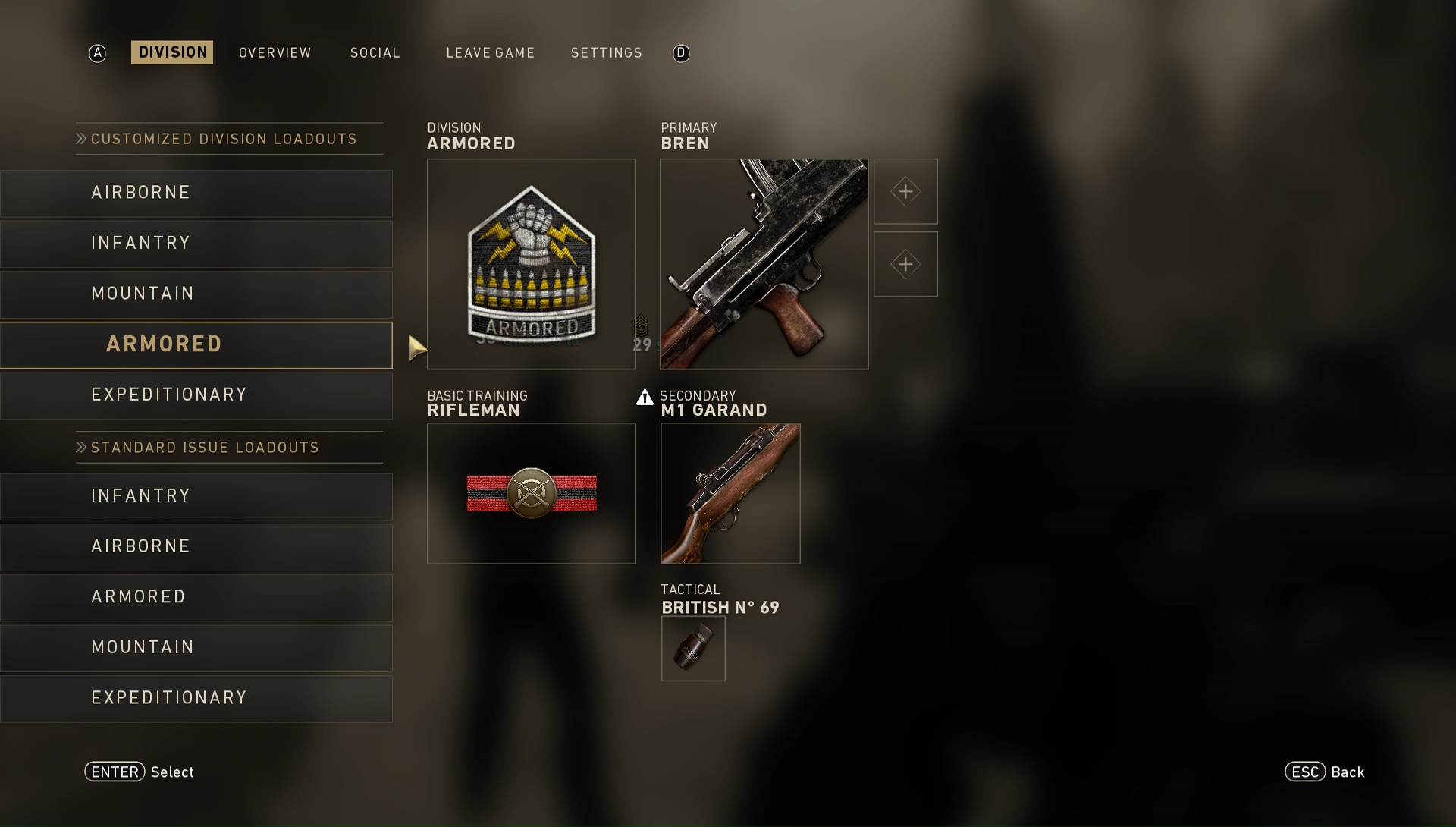
Bad: Basic menu functions
I like the cleanliness of the menus. It's all very attractive, and the progression system has been simplified and streamlined. That said, there are a few irritating interface problems. I have a controller plugged in for Rocket League, and every time I started the beta it asked me if I wanted to use controller prompts. Why would I want to use a controller? If anything should be buried in the menu in a PC shooter, it's controller support, yet what's actually buried is quitting the game. I took to using Alt-F4 to quit, because the route there is Options > Main Menu > Confirm > Quit > Confirm. The beta also insisted on starting in windowed mode, though I never played it windowed. These are trivial complaints, but it seems like it ought to be relatively trivial to keep my settings between sessions and give me a button that quits the damn game without asking me to confirm twice that, yes, I would like to stop playing Call of Duty now.
The worst: Cheaters
Even though it was just a beta, there were already cheaters. I ran into one who had the gall to advertise their cheat website while cheating. If Call of Duty: WWII will be at all worth playing, it needs to finally solve the plague of auto-aimers it attracts. That they were in a weekend-long beta doesn't inspire confidence.

Tyler grew up in Silicon Valley during the '80s and '90s, playing games like Zork and Arkanoid on early PCs. He was later captivated by Myst, SimCity, Civilization, Command & Conquer, all the shooters they call "boomer shooters" now, and PS1 classic Bushido Blade (that's right: he had Bleem!). Tyler joined PC Gamer in 2011, and today he's focused on the site's news coverage. His hobbies include amateur boxing and adding to his 1,200-plus hours in Rocket League.
